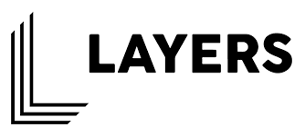The best solutions usually have a lot of… layers. That’s what inspired James Hanson to launch Layers Studio in January 2016. After being head of creative for an international branding company and a senior designer for a digital agency, James noticed that ‘traditional’ agency work often focuses on efficiency rather than finding the best solution. This realization made him want to start a company that integrated different skillsets from the very beginning, including developers, designers, and digital marketers.

Source: www.layers.studio
James and his team approach projects by understanding the problem and asking how to deliver the best solution to the customer. These solutions range from building mobile or web apps, implementing a different marketing strategy, the integration of web software or communications tools, or a combination of the above. For as much as James loves design and aesthetics, the goal is to design products that work. To do that, he and the team at Layers Studio follow a ‘design thinking’ method. The team gets behind the problem, truly understanding its every angle before deciding what the final product will look like.
Based in Newcastle, England, Layers Studio started in a coworking space with just James as the founder and only employee. They grew into their own office with a full-time team of six, with the hopes of adding at least three more employees within the next year. James and his team hired several design interns through relationships with local universities where students are able to spend quality time learning about design, development, and marketing.

Layers Studio founder James Hanson
Layers Studio has a broad base of clients, ranging across industries from hospitality and leisure to construction, utilities, and education. The fact that Layers is not relying on only one sector has helped them stay afloat during the COVID-19 pandemic, James says. Although they have been hit like most other companies, their diverse portfolio generated a wider network for them to find new clients.
For example, Layers designed and built the first major software for Ctrl Hub, a modular software platform for construction utilities, asset management, risk management, compliance software, and project management for the gas and utility sector. This platform is used by all the utility companies in northeast England, and Ctrl Hub is working on branching out to western England and overseas. Layers also developed Study Atlas, a web app for international students looking to study in the UK. The platform makes the British higher education landscape more transparent and removes the middleman to get non-biased advice, allowing students to search and compare programmes and courses while going through the application process.
Through the many challenges they worked through, like losing big projects due to Brexit, having to re-evaluate where to reinvest their resources in times of an uncertain relationship with the EU, and working from home through COVID-19, James is proud that his company managed to stick to the same ethos he started it with. Layers Studio doesn’t sell one thing, but rather sees itself as a provider of robust solutions that really add value for customers, and James thinks that shows. In this time of change, Layers is also working on their own first app. James shared that it will be solution for qualification management. They are cooperating with the certificate awarding organizations and training providers both regionally and nationally to digitise the physical issuance of certifications and create a one-stop-shop for qualification management.
While it may take Layers Studio a little longer to get started on a project because they don’t follow the traditional agency model, James and his team know it is this approach that has helped Layers build a stronger foundation and become a successful small business in the app economy. Five years in, they have built a strong network and have seen many of their clients become bigger and more successful.
If you want to learn more about James and Layers Studio, tune in to our latest episode of Tech Swamp! You can listen on Apple Podcasts, SoundCloud, Spotify, and Stitcher.
